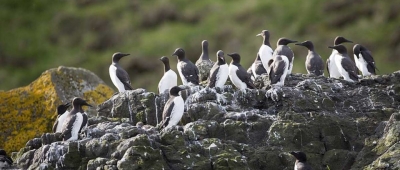Small Animals Live in a Slow-Motion World
Yes, birds see things in slow motion. This is because they can process info so quickly that time seems to pass slowly to them. The smaller they are and the faster their metabolic rate, the slower time passes. They can see at twice the speed of humans. This, it is said, is needed to avoid larger, slower predators.
The scientists who ran the new study gathered data from previous experiments on the rate at which visual information is processed in 34 vertebrates, including lizards, birds, fish and mammals. The scientists hypothesized that the ability to detect incoming sights at a high rate would be advantageous for animals that must perform the equivalent of bullet dodging—responding to visual stimuli very quickly to catch elusive prey or escape predators, for instance. These animals tend to be lighter and have faster metabolisms. The data bore out the hypothesis: species that perceived time at the finest resolutions tended to be smaller and have faster metabolisms.
These findings show that differences in how a mouse and an elephant sense time are not arbitrary but rather are finely tuned by interactions with their surroundings. A link between time perception, body structure and physiology suggests that different nervous systems have developed to balance pressures from the natural environment with energy conservation. Rapid perception might be essential for a hawk but would waste a whale's precious energy. As for Fido, a year really does seem longer to him than it does to you, but probably not by a factor of seven. Dogs can take in visual information at least 25 percent faster than humans—just enough to make a television show look like a series of flickering images.
Credit : Scientific American
Picture Credit : Google
